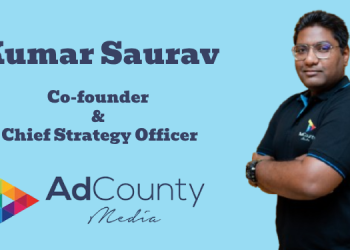As we wrap yet another year of marketing and innovating, let’s look at how the trends which started this year will be carried forward to the coming year. While 2024 saw lot of creativity and inclusion of new age media, some marketing trends which all marketers should look forward to are:
Cultural Intelligence (CI)
There’s no doubt that AI will continue to drive innovation this year. However, one thing we can’t miss is Cultural Intelligence (CI), which is equally important.
By leveraging cultural intelligence, brands can forge deeper connections with diverse consumer groups. While AI can provide valuable insights into trends and directions, understanding cultural nuances is essential for crafting a compelling brand narrative. This cultural context serves as the foundation upon which effective brand stories are built.
Owning the Micro-Moments
The ever-decreasing attention span of today’s audience has drastically shortened the lifespan of ads. Campaigns that once ran for 2-4 years are now compressed into just 2-4 weeks—or even less. With audiences exposed to fresh content daily, the traditional approach of repeatedly serving the same message has become obsolete.
So, what’s becoming increasingly critical to staying relevant in the minds of target audiences? Take, for example, the strategies employed by Q-commerce players or new-age brands in recent years. They focus on capturing attention during micro-moments, ensuring they remain in the consideration set when consumers make purchase decisions. This will be one of the most sought-after trends in 2025.
Ethical Marketing
This is something I have been observing closely, and it’s gaining serious traction. Brands like Whole Truth are setting a new standard by building their identity around honesty and transparency—it’s all about cutting through the clutter and speaking the truth. What’s fascinating is how this resonates with Gen Z and Alpha audiences. These generations are incredibly sharp; they have grown up surrounded by a constant stream of content that extends far beyond traditional advertising. They can spot authenticity a mile away and are deeply rooted in reality. Their strong opinions and active presence on social media amplify diverse perspectives, creating a ripple effect across the globe.
But here’s the kicker: for many legacies global brands, this shift isn’t easy. Their business philosophies and advertising strategies were built on entirely different foundations, making it a tough pivot. Ethical marketing isn’t just about changing what you say—it’s about redefining who you are as a brand. And that’s no small feat.
Focusing on Gen Z and Alpha
It might sound cliché, but nearly every brand aspires to capture the attention of Gen Z and, now, Gen Alpha. They want to be part of future-forward conversations and stay relevant. However, it’s easier said than done, products may not always align with the unique preferences and needs of these audiences.
What will be intriguing to watch is how legacy brands evolve their content strategies. The focus needs to shift from promoting the brand or offers to creating content that genuinely resonates with the audience. It’s about breaking away from traditional advertising approaches and centering on the emotions, interests, and priorities of the target audience rather than the brand’s agenda.
In recent years, we’ve seen several brands successfully emerge by crafting the right messaging and advertising, tailored specifically for Gen Z and new-age consumers. These brands understand that connecting on a deeper, more authentic level is the key to winning this generation’s loyalty.
Experiential Marketing
Post-COVID, the demand for immersive experiences has skyrocketed. People are eager to step away from their screens and dive into real-world events. Just look at the frenzy around Diljit Dosanjh or Coldplay concerts—it’s a clear sign that experiences are the new currency of engagement.
This trend opens up massive opportunities for brands to collaborate and connect with audiences in more meaningful ways. Take Levi’s, for example, which partnered with Diljit and Dipika for a concert in Bangalore, blending music and fashion seamlessly.
The game-changer here lies in creating proprietary experiences (IPs) that allow audiences to truly feel the brand and its vibe. However, the real challenge lies in integrating the product authentically and ensuring proper attribution. It’s easier said than done, but when executed right, it can create an unforgettable brand impact.
Brands will have to up their marketing game in 2025, as consumers are now spoilt for choice and attention span is getting lesser and lesser. Marketing tactics like Shockvertising will not work, but marketing strategies focusing on long term solutions should be the way forward.

















